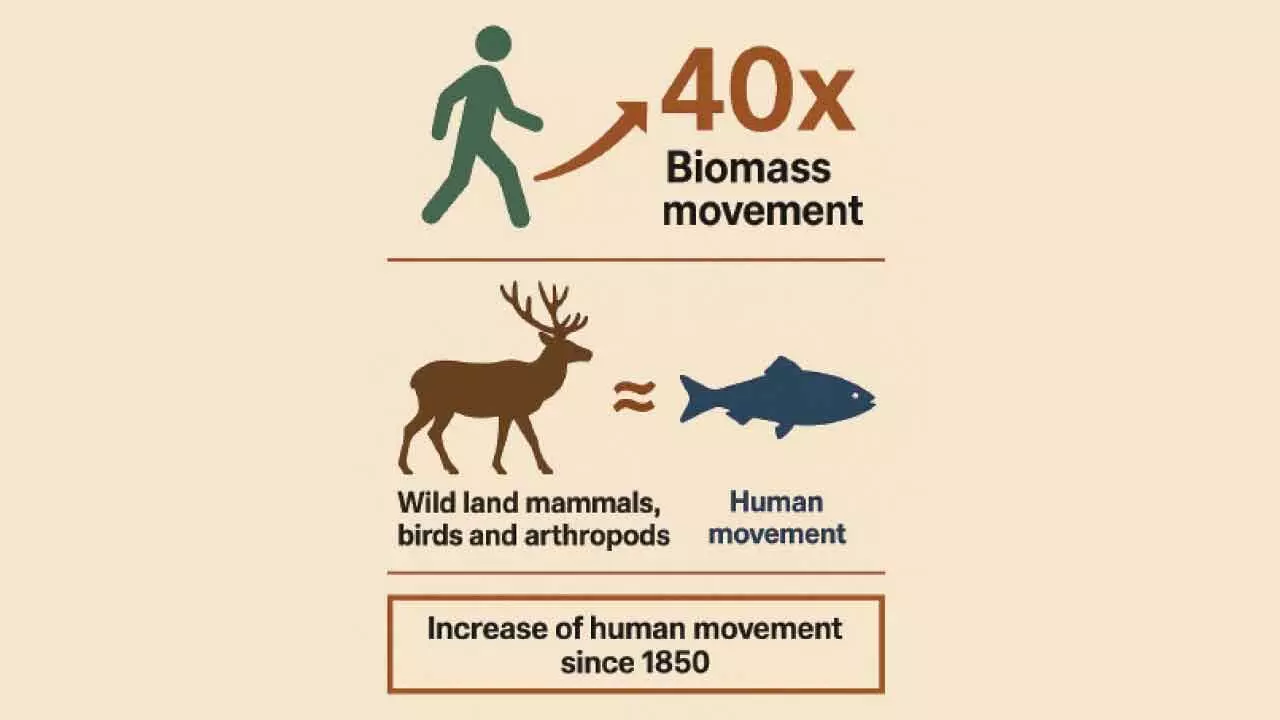Humans movements rose 40x since Industrial Revolution, says study
Attributes to population growth, use of motor vehicles, fossil fuels, extensive infrastructure enabling mobility of humans
Humans movements rose 40x since Industrial Revolution, says study

Movements of marine animals may have halved since the Industrial Revolution due to fishing and whaling, while those of humans have increased 40-fold in the same time, a study has estimated.
Findings published in the journal Nature Ecology and Evolution also suggest that movement due to humans on the planet could be up to 40 times more than that of all land animals combined.
Researchers from the Weizmann Institute of Science in Israel and institutes in Germany and the US have attributed the result to population growth, use of motor vehicles, fossil fuels and an extensive infrastructure enabling mobility of humans.
They added that while walking accounted for the vast majority of human movement in 1850 -- when new industries started rising and expanding geographically -- walking makes up about a seventh of all forms of human movement today. Motorised road vehicles were estimated to make up 65 per cent of all human movement, followed by walking and cycling at 20 per cent each. Flying constituted 10 per cent and rail transport about five per cent of the world's humans movement.
The researchers analysed previously published studies and country-level data sources to estimate movements of animals and humans.
"The biomass movement of marine animals, which we find to be the living world’s largest, has been halved since 1850 due to industrial fishing and whaling, while human biomass movement has increased by about 40-fold," the authors wrote. High-income countries, hosting 16 per cent of the world's population but accounting for nearly 30 per cent of movements among humans, were seen to show the largest increase in per capita movement -- almost twice as much as in other income groups. However, human movements in low-income countries -- hosting nine per cent of the global population -- were seen to account for only four per cent of the world's human movement. In another paper, published in the journal Nature Communications, researchers including those from the Weizmann Institute of Science in Israel estimated that the biomass -- how much an animal weighs -- of wild mammals combined has declines by more than half since 1850.

